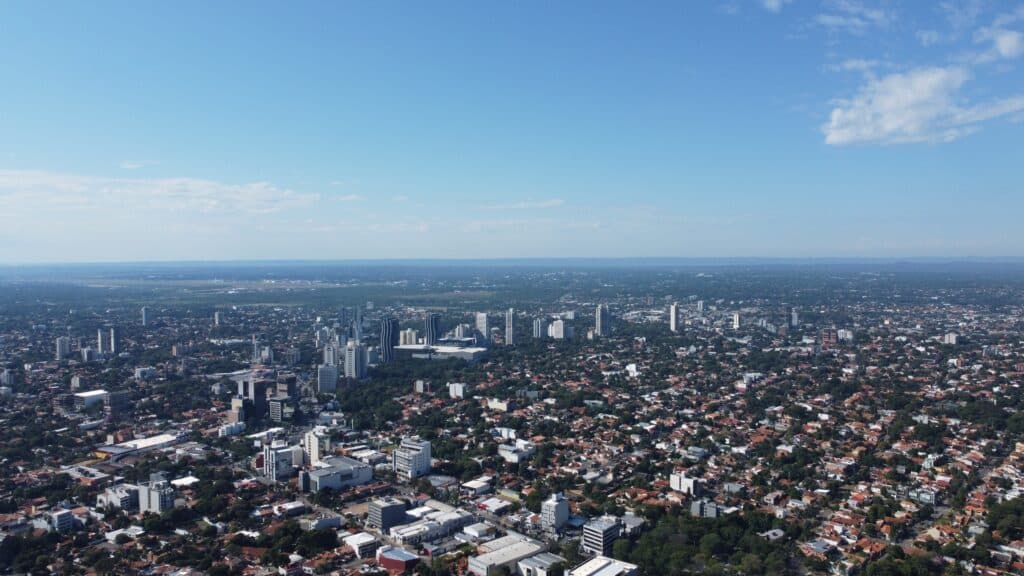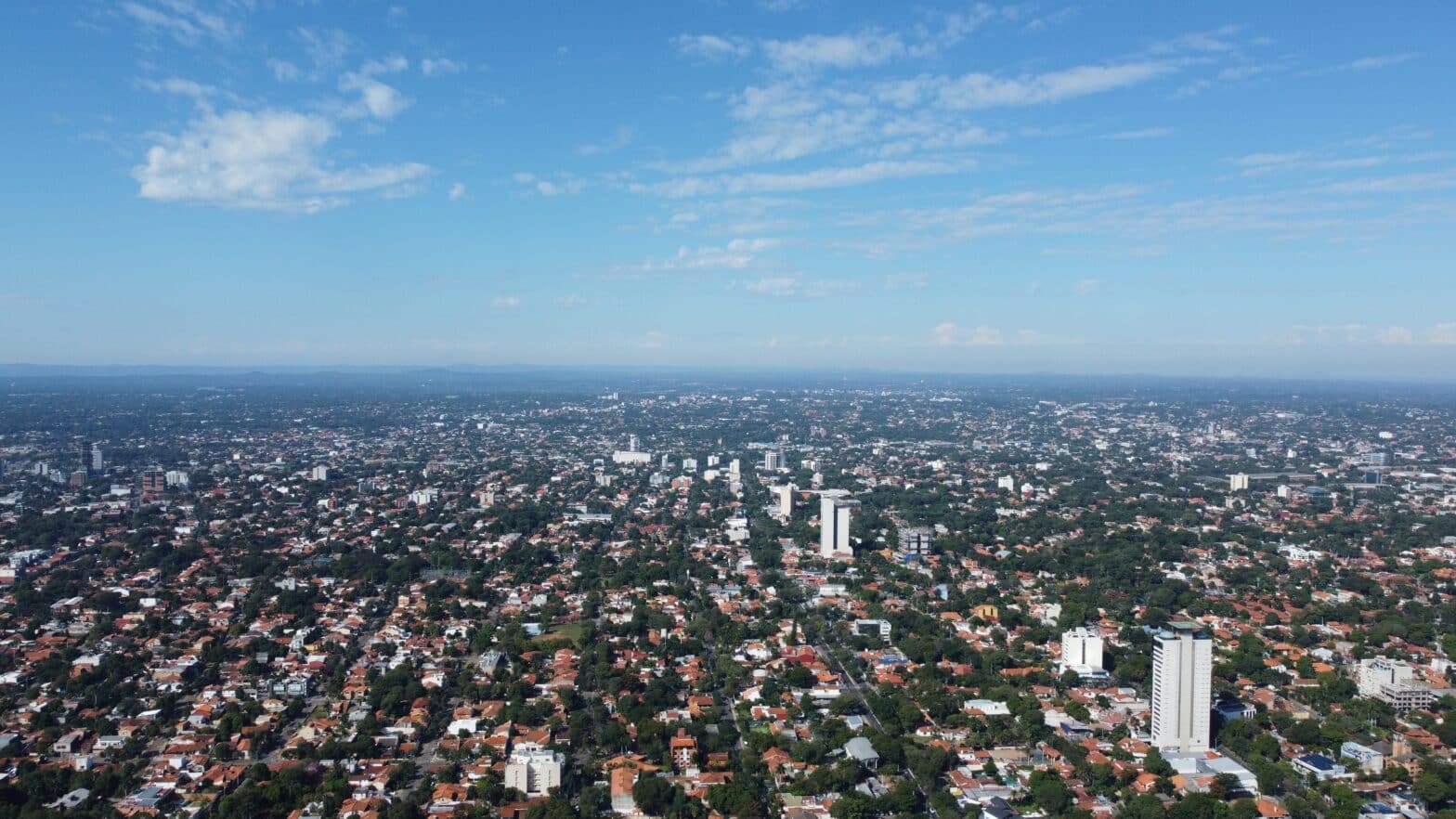Are you ready to embark on a journey of adventure to an Amerindian destination nestled between the arid Chaco and the Atlantic Forest? Paraguay, some whisper, is the heartbeat of Latin America. This small and peaceful country is unfairly overlooked by world travelers and expats. And yet, this unique destination has so much to offer in terms of hospitality, scenery and quality of life.
In this guide, we feature everything you will need to know about expat life in Paraguay, whether you’re moving there alone, as a couple or with your children.
Visa for Paraguay
Depending on your profile and reason for relocation, Paraguay offers different types of visas. For a temporary stay of six months or one year, foreigners can apply for a temporary residence permit (radicación precaria or radicación temporaria), which can be renewed more than once… If you wish, however, to relocate to the country for a longer period, you must apply for a permanent residence permit (radicación permanente). All applications for residency must be made once you have arrived in the country.
For more information, please contact the Paraguayan embassy or consulate in your current country of residence.
Living in Paraguay as an expat: What are the advantages?
- Great hospitality: the atmosphere in Paraguay is much more peaceful than in Colombia, Brazil or Peru.
- Its authenticity, friendly and open to expats people
- Delicious and diverse cuisine. Super tempting to all foodies is the asado, a slow-cooked barbecue.
- Lower cost of living than in Europe and North America.
- The most attractive tax system in South America (even better than Panama’s famous one)
- Stunning, varied, and unique landscapes that will appeal to nature lovers and photo enthusiasts.
- An open and dynamic economy, although Paraguay continues to remain one of the poorest countries in Latin America.
Is it dangerous to live in Paraguay?
In general, it is not dangerous to live in Paraguay, even as a single woman. Although security risks are lower than in other neighbouring countries, it is important to make at least one ‘reconnaissance’ trip before relocating to choose a secure residential sector. The crime rate may have risen in recent years, but the country remains one of the safest in Latin America.
It goes without saying that you should take the usual precautions and be vigilant and not venture out alone at night in certain areas of the capital (La Chacarita) and in the suburbs of Asuncion. Other notes of caution include check around you before withdrawing money at ATMs and avoid using the main roads at night.

It is strongly recommended not to travel to the area on either side of the border between San Pedro and Concepcion due to the risk of terrorist activity. Avoid, too, the sparsely populated areas of Canindeyu where drug trafficking is prevalent.
Working in Paraguay
The working environment in Paraguay is very different from that of Europe or North America. Labour legislation is light and not well-respected. Working conditions vary greatly from one company to another and from sector to sector.
Most expats either have their own businesses or work for an international company that offers good working conditions, including a salary well above the national monthly average salary of €310.07 (PYG 2473778). If you want to work as an employee in a Paraguayan company, it is advisable to do your research before relocating. Local websites such as Buscojobs or Opcionempleo can help you with your search. You should be aware that in many sectors national preference comes first. Employers must prove that they cannot recruit a Paraguayan national for the job.
On the other hand, Paraguayan legislation is favourable to investors. To set up a business, you can apply to Suace, the unified system for opening and closing businesses. You may wish, however, to use the services of a business lawyer or chartered accountant. Specifically, the maquila regime allows foreign companies to set up in the country or subcontract the processing of goods and services intended for export to other national companies. While most investors are active in the agri-food industry, new investments are emerging in the industrial and automotive sectors.
What you need to know:
- It’s up to your prospective employer to take the necessary steps to enable you to work legally in the country.
- If you want to work as an employee, it’s best to work for a multinational company.
- The most promising sectors are energy, agriculture, cattle, soya and… medicinal plants, construction, and distribution.
Tax advantages
Paraguay has the lowest tax rate in Latin America, which is highly beneficial for both companies and individuals. While the corporate tax rate is set at 10% on profits, foreign companies are generally not taxed on income earned in Paraguay. The country also offers tax incentives to companies operating in its free trade zones. Income tax ranges from 0 to 10% for individuals, who can also benefit from tax exemptions.
Opening a bank account
Although there are exceptions, most banks in the country will not open a bank account for non-residents. Please contact local banks such as Interfisa Banco or Banco Atlas for more information.Generally, banks ask for several documents, including a visa or certificate of admission to permanent residence, a letter of reference issued by your bank, proof of income in the country which means a salary payslip and proof of residence in Paraguay. You can choose to open an account in US dollars or in guaranis (PYG), the local currency.
To become a Paraguayan resident, you must have the equivalent of $5,000 in a deposit account.
Cost of living
Unlike Argentina, Paraguay is one of the poorest countries in Latin America with modest growth of 4% in 2021.The cost of living is one of the lowest on the continent. Of course, your budget will depend on your income, lifestyle, and where you choose to live. Life here is at least 50% cheaper than in France in many areas such as accommodation, transportation and food. For example, a three-room apartment in the city centre costs between €455.89 and €877.41. On the contrary, private health system and education can be quite expensive.
Finding accommodation
It is fairly easy to find accommodation in the country as a wide range of is available including private rooms; luxury residences; family residences. Although prices are higher in the capital, it is quite possible to find very comfortable family accommodation for an average budget of €650. If you decide to rent, be aware that the landlord may ask you for a work contract and/or proof of income, as well as a deposit of one month’s rent in advance.
As an expat, you can also buy a property. All you need to do is go to a local notary with proof of identity. Prices are much lower than in many European or North American cities: you can expect to pay between €752.06 and €1,494.38 per square metre for a property in the city.
Health in Paraguay
Despite recent efforts by the government to increase investment in Paraguay’s healthcare system, there are still major disparities in terms of access and quality of care between public/private and urban/rural areas. The country is home to a few very good private hospitals, particularly in the capital, namely, the Centro Medico Bautista and the Sanaterio Americano. These two hospitals charge relatively high prices compared to the public sector. Although expatriates, who are permanent residents, are entitled to social security cover and have access to public health facilities, they generally prefer to take out international health insurance, which provides effective and flexible cover, in private facilities whatever the country in the world.
Settle in and Savour the Sights:
- The Asunción: Democracy Square; the Pantheon of Heroes; street art in the historic centre; the Lopez Presidential Palace; the labyrinthine Mercado Municipal No4; la Costanera and the Nuestra Señora de Asunción Cathedral.
- Caacupé, a place of pilgrimage considered to be the Paraguayan Lourdes.
- Itaipu Dam, the world’s largest electricity-producing dam.
- Encarnacion, the ‘Pearl of the South’, with its carnival and the ruins of Jesuit missions.
- Parque Nacional San Rafael, with its unique flora and fauna — a birdwatcher’s paradise with wonderful places.
- The paradisiacal Gran Chaco, with its breathtaking landscapes, lush and arid flora and tropical fauna.
- Laguna Blanca, a pristine lake bordered by the Cerrado.
- Conception, the ‘Pearl of the North’.
